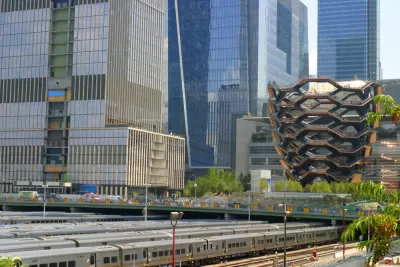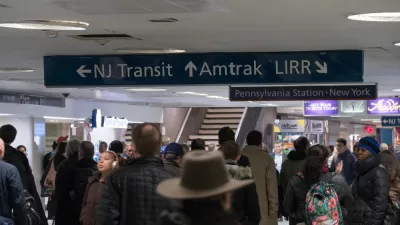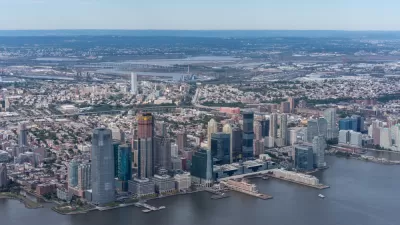Considered by some to be the most critical infrastructure project in the country, the Gateway Project is an ongoing example of the extreme costs of bureaucratic and political neglect.

The Gateway Development Commission, tasked with managing the Gateway Program to develop new capacity for the Northeast Corridor between Newark, New Jersey and Penn Station in New York City, announced at the end of August that the project will open three years later than expected and cost $2 billion more to construct.
Officials blamed some of the delay and expense on “market volatility and inflation,” according to an article by Dana Rubinstein for the New York Times. “The commission hopes to make up much of the cost difference with funding from the federal infrastructure law passed last year. The remaining cost overrun will be split between New York and New Jersey and the federal government.”
The news is only the latest unwelcome development in the long saga of the Gateway Program. Since the Biden administration took office, the news has generally been good—funding approval for the Portal Bridge and a $14 billion funding agreement between the states of New Jersey and New York. The last time Planetizen picked up news of time and money being added to the project timeline was in September 2020.
Rubinstein includes a discussion of the high costs of transit infrastructure investments in the article, citing Eric Goldwyn, director of the Transportation and Land-Use program at the N.Y.U. Marron Institute, to explain how expensive is the project compared to other projects in the country and world. The Marron Institute produced the first study on the high cost of transit in 2021.
FULL STORY: Commuter Tunnel Under the Hudson Won’t Be Finished Until 2035

Planetizen Federal Action Tracker
A weekly monitor of how Trump’s orders and actions are impacting planners and planning in America.

San Francisco's School District Spent $105M To Build Affordable Housing for Teachers — And That's Just the Beginning
SFUSD joins a growing list of school districts using their land holdings to address housing affordability challenges faced by their own employees.

The Tiny, Adorable $7,000 Car Turning Japan Onto EVs
The single seat Mibot charges from a regular plug as quickly as an iPad, and is about half the price of an average EV.

As Trump Phases Out FEMA, Is It Time to Flee the Floodplains?
With less federal funding available for disaster relief efforts, the need to relocate at-risk communities is more urgent than ever.

With Protected Lanes, 460% More People Commute by Bike
For those needing more ammo, more data proving what we already knew is here.

In More Metros Than You’d Think, Suburbs are Now More Expensive Than the City
If you're moving to the burbs to save on square footage, data shows you should think again.
Urban Design for Planners 1: Software Tools
This six-course series explores essential urban design concepts using open source software and equips planners with the tools they need to participate fully in the urban design process.
Planning for Universal Design
Learn the tools for implementing Universal Design in planning regulations.
Smith Gee Studio
City of Charlotte
City of Camden Redevelopment Agency
City of Astoria
Transportation Research & Education Center (TREC) at Portland State University
US High Speed Rail Association
City of Camden Redevelopment Agency
Municipality of Princeton (NJ)





























